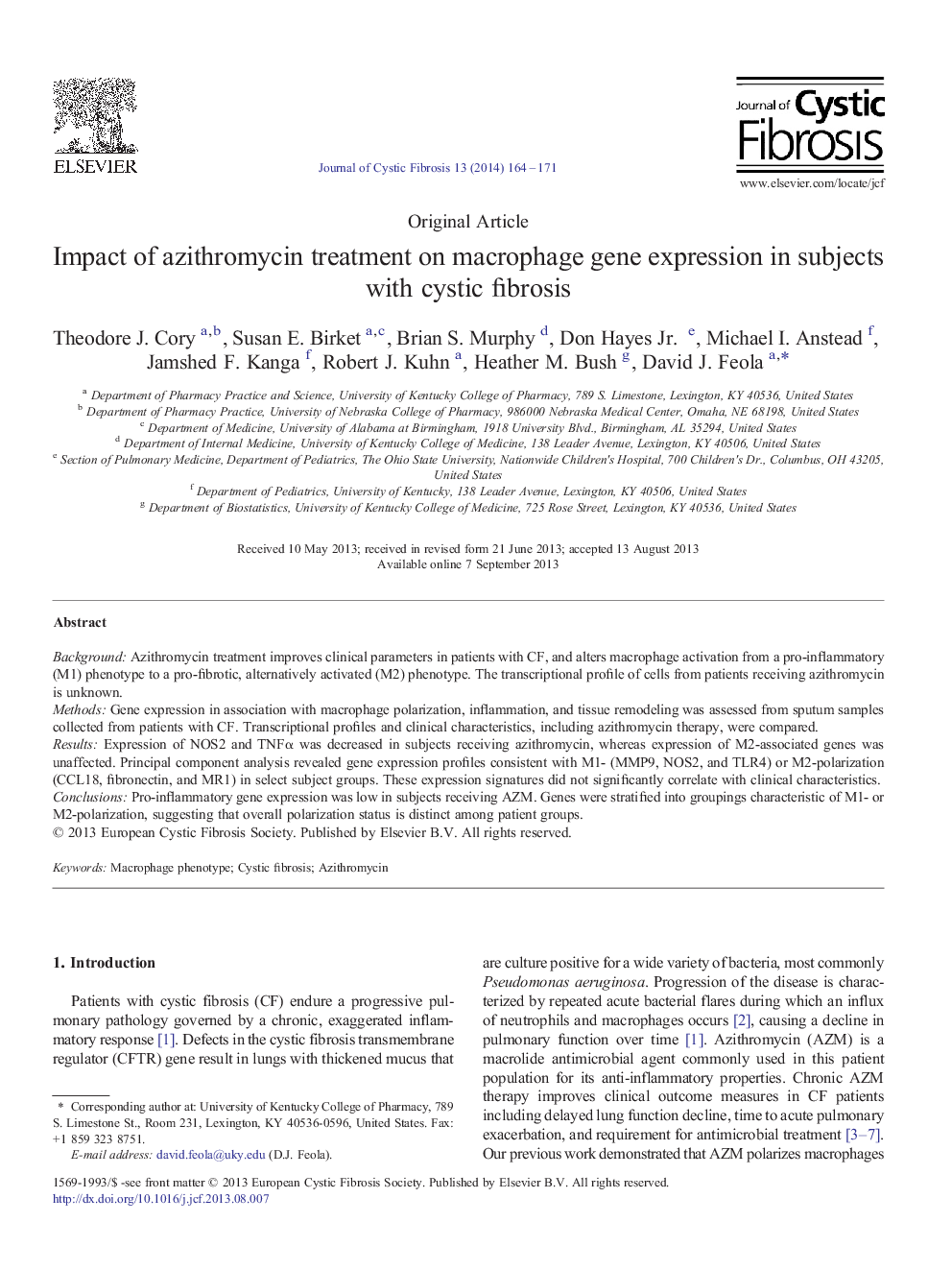| Article ID | Journal | Published Year | Pages | File Type |
|---|---|---|---|---|
| 6240877 | Journal of Cystic Fibrosis | 2014 | 8 Pages |
BackgroundAzithromycin treatment improves clinical parameters in patients with CF, and alters macrophage activation from a pro-inflammatory (M1) phenotype to a pro-fibrotic, alternatively activated (M2) phenotype. The transcriptional profile of cells from patients receiving azithromycin is unknown.MethodsGene expression in association with macrophage polarization, inflammation, and tissue remodeling was assessed from sputum samples collected from patients with CF. Transcriptional profiles and clinical characteristics, including azithromycin therapy, were compared.ResultsExpression of NOS2 and TNFα was decreased in subjects receiving azithromycin, whereas expression of M2-associated genes was unaffected. Principal component analysis revealed gene expression profiles consistent with M1- (MMP9, NOS2, and TLR4) or M2-polarization (CCL18, fibronectin, and MR1) in select subject groups. These expression signatures did not significantly correlate with clinical characteristics.ConclusionsPro-inflammatory gene expression was low in subjects receiving AZM. Genes were stratified into groupings characteristic of M1- or M2-polarization, suggesting that overall polarization status is distinct among patient groups.
